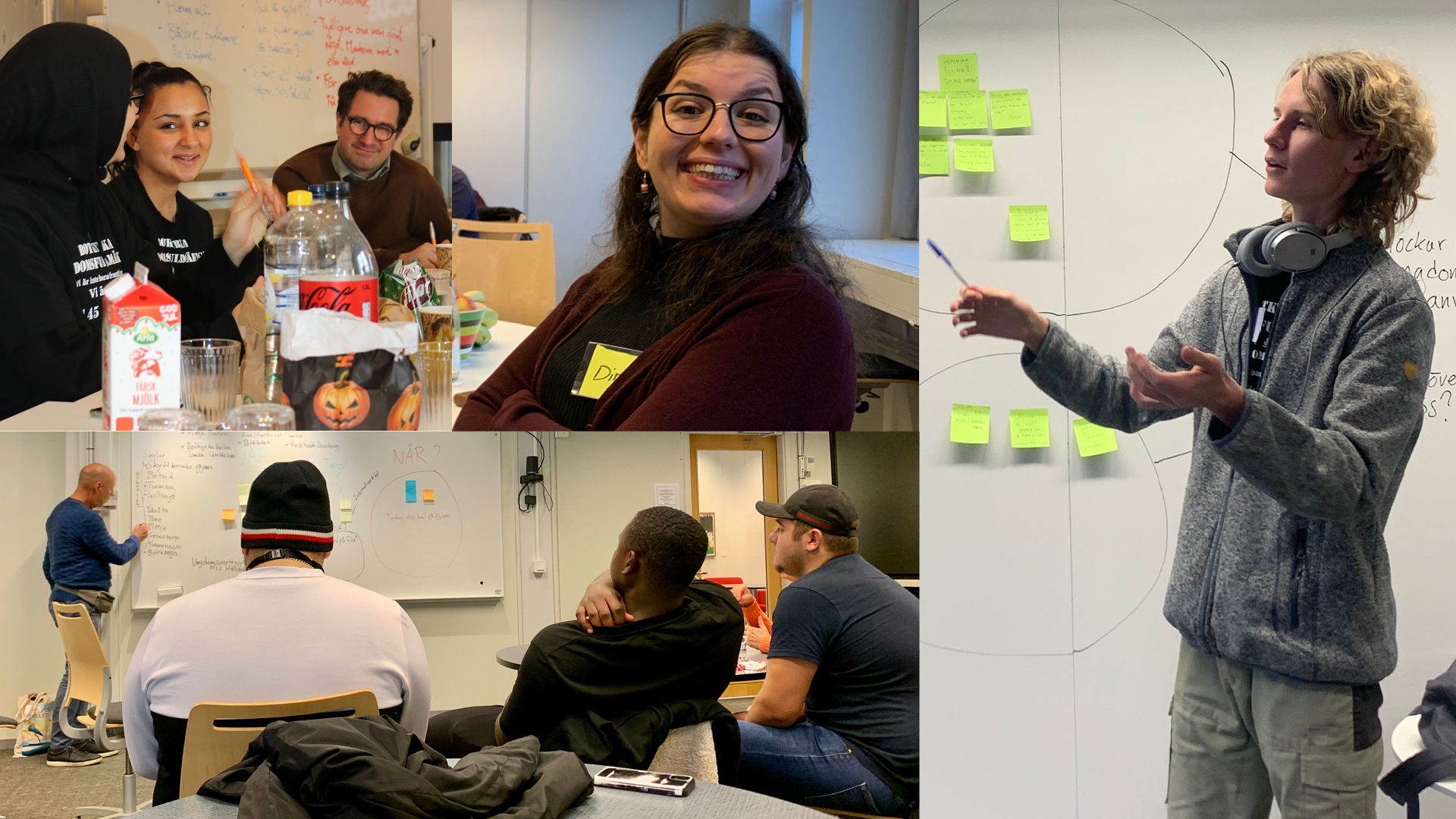Can civil-society engagement function as a driver for other forms of social inclusion for young people? And if so, can we identify important drivers for enabling more young people to engage in civil society? These questions lie at the heart of our Swedish YouCount case.
The Swedish case
The case is carried out in Botkyrka, one of many highly diverse municipalities in Sweden. Botkyrka is located south of Stockholm, and among the 95,000 inhabitants, about 100 languages are spoken, and 59 per cent are either themselves born in another country or have parents who are both born abroad. Just as in other similar areas, in Sweden as well as abroad, Botkyrka faces various challenges surrounding social exclusion, segregation, unemployment, and education.
The main objective of our case is to investigate if, and in what ways, engagement in Botkyrka Youth Council (BYC), where young citizens can partake in local policy making to influence social, political and environmental decisions affecting the young community, can lead to other forms of social inclusion, such as work and education. BYC sees civil-society engagement as an important factor for social inclusion among young citizens, but a common perception is that many young people in Botkyrka experience challenges that may prevent such engagement.
Through collaboration with present and former members of BYC we are exploring these questions, with the goal of jointly creating solutions to navigate past identified obstacles – solutions that can be used both in Botkyrka, in other parts of Sweden, and abroad.
Co-creation and local knowledge
Throughout 2022, we (professional researchers from Södertörn University and the non-profit organisation Public & Science, VA) have collaborated with the BYC youths in a number of co-creative workshops. The sessions have centered around formulating research questions, developing methods, piloting the YouCount app and reflecting on ethical dilemmas and potential obstacles surrounding data collection, as well as discussing what kind of social innovations the young community in Botkyrka wish to see implemented.
The co-creative format and workshop methodology has helped establish trust and openness between the professional researchers and the BYC youths, and helped make BYC an integral, active part of the case study from its very beginning. The youths’ local knowledge about life in Botkyrka and unique perspectives on challenges facing the young community have been invaluable to the case study. Their shared experiences and concerns surrounding social inclusion have led the way throughout the process, and will function as an important foundation when we together – after collecting and analyzing the data – set out to create and implement solutions to some of the obstacles identified by young people in Botkyrka.
The youths’ local knowledge about life in Botkyrka and unique perspectives on challenges facing the young community have been invaluable to the case study.

In order to make the co-creative workshops as informal and fun as possible, we have started every session with a social ice-breaker game, such as ”Two truths and a lie”. We have also found that the simple act of eating lunch together (e.g. Pizza or Thai-food) has helped to create a more egalitarian and open environment for co-creation. Besides working together on the practical and case-specific aspects of the YouCount project, we have also held presentations about our own scientific backgrounds, as well as short theoretical lessons about the scientific method and what it’s like to be an academic researcher.
The simple act of eating lunch together has helped to create a more egalitarian and open environment for co-creation.
During the co-creative sessions the BYC youths have also led the way in developing our strategy for participant recruitment, as well as in formulating case-specific questions for the YouCount app’s survey on social inclusion. The questions have been tested in multiple pilot exercises, in which we (professional researchers) have acted as discussion partners and collected feedback from the BYC youths. Data collection will be carried out in the coming weeks. Members of the BYC will visit various places where young people gather, such as schools, leisure centres, sports clubs and cultural associations. These places have been identified by the BYC youths as key gathering-spots in Botkyrka. At each location, participants (Botkyrka youths) will be invited to share their experiences using the YouCount app.
Looking forward
The next step in the research will also include interviewing former BYC members on how their involvement in BYC has affected other forms of social inclusion during their lives, and what obstacles, drivers and solutions they identify as important for getting more young people engaged in BYC and in civil-society more generally.
Throughout the project we have been encouraged time and time again by the BYC youths commitment, creativity and scientific competence. Working with them has been both inspiring and highly educational, and we feel like we have learned a lot about ourselves as researchers, as well as about the unique challenges and rewards that Citizen Social Science projects can bring. We are looking forward to continuing this fruitful collaboration in the next stages of the project, where the co-creative rubber finally gets to meet the social innovation-road!

